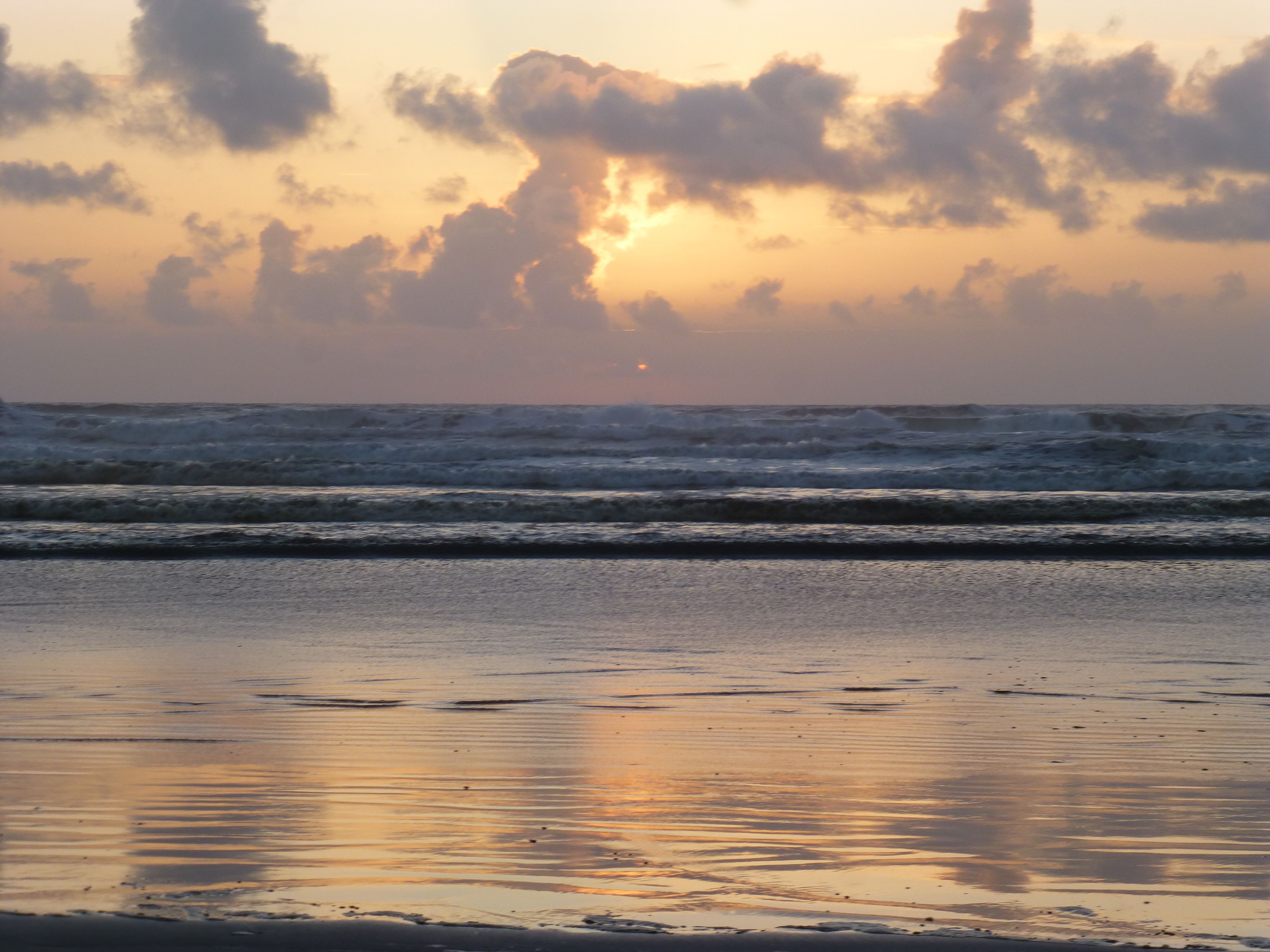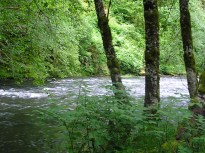Yesterday a buyer for a local market told me the prices of bulk food items have gone up– way up. Some of them have doubled. “It’s scary!” he exclaimed.
High food prices are driven in part by rising gas prices, since we transport much of our food over substantial distances. But they are also driven by crop failures and shortages due to climate change. Freezes in the south. Floods there and elsewhere. The number of tornadoes in the Midwest is increasing exponentially each year.
Unlike the grocer, many who took a recent ABC poll are evidently concerned about the economy but not at all concerned about climate change. I suppose it’s an artifact of modern life to think of the land and its weather as separate from the economy– as did my student who recently worried we would not have enough to feed our current population if we “went back to farming”. I had to break it to him. The land still feeds us.
The land and its seasonal cycle of growth is the ultimate bottom line. And the weather counts as a trump card in this. Lately, it has been snowing in Eugene, Oregon. Not enough to stick much, but it has also been hailing a lot. Today it is still not warm or dry enough for pollinating insects to fly. Indeed, many of them may not even survive. The recent spate of freezing weather followed on the heels of unseasonably warm days, so that everything hatched and bloomed–and then got zapped.
I can guarantee food prices are going to go up more this year, and it has directly to do with unstable climate conditions.
Those in the ABC poll not only separated the economy from climate change. They also separated climate change from personal responsibility. They concurred with scientists that climate change exists and is caused by humans– but they asserted that that didn’t have anything to do with them.
This disconnection plays out in a little scenario on my street four times daily. Six blocks away is an alternative school. SUVs with a single child and driver in them line up bumper to bumper as parents take their kids to that school. I know these parents hope to ensure a solid future for their kids by placing them in a good school. But their way of transporting them thee undercuts that same future by contributing to global warming. Global warming disturbs the moderating ocean currents that give us the mild Pacific Northwest (and European) climates. There is a dusting of snow and torrents of hail as a backdrop as all those in SUVS single-mindedly drive on.
It used to be adventure that sold those SUVs. Now it is safety. SUVs are touted as smooth, comfortable and secure: insulated from everything on the outside. The psychology of the dangerous “out there’ sells gas guzzlers in spite of the high price of gas and environmental concerns. I understand there is ad for a Hummer (I haven’t seen it) that takes place on a playground. In it a mother backs down her son’s bullies though her choice of vehicle.
The myth of the dangerous other doesn’t only sell cars. It influences the way we live. These parents taking their children to school apparently don’t talk to one another enough to form carpools, even though they are all going to the same place. Thus they and others like them all over the US paradoxically contribute to global warming while attempting to secure their children’s futures.
The reality of our current environmental crises is scary, in the words of the grocer above. But acknowledging those crises–and each of our parts in them—gives us the power to assess and change our habits. That is the first step to actually protecting our children.
It is the first step in making sure that we pass on a world to them in which the quality of life is every bit as good as our own.
You are welcome to link to this post; note, however, it is copyright 2008, Madronna Holden. Feel free to email me if you wish to use it.
Filed under: Environmental ethics, Environmental psychology, Our Earth and Ourselves, Working for justice | Tagged: environmental philosophy, Environmental psychology, Ethics, global warming, Working for justice |






































Madronna, what quietly beautiful wisdom you have here. Your SUV observations reminded me of a bit I wrote last year while staying with my son in Virginia. I thought I might send it as a letter to the editor in Eugene, but never did, the school year passed. Here:
“We’re not in (Eugene) anymore, Toto.” Hearing the motor I looked out and watched my seven your old grandson ride by with two adorable neighbor girls. Fifth graders, the girls were driving, I swear, an army jeep, not much smaller than regulation size. All three, thankfully, wore glossy black helmets. “Hi, Miss Kate!” one girl called, then gunned it up the hill. Roads here have names like “Winchester” and “Marlboro.” People boast a sort of barbaric gentility. Daily three parents in three SUV’s meet the school bus, pick up one or two kids each, and follow each other back into the spacious neighborhood. At home, the children race for their favorite toys–all wheeled, all gasoline driven–and blaze around the countryside until bedtime. Here, just outside the Washington DC Beltway, there’s not a flicker of concern over effects of fossil fuel consumption. They’re living the American Dream.
Hey Kate,
You paint a vivid portrait here. About time we had a new American Dream with its “barbaric civility”. I especially like the affection with which you treated these girls– they deserve better models– and a better future. Thanks for helping to envision that.
Madronna
This also brings to mind the fact that 80% of this nation is obese. If we would get out and walk to 1 mile to drop our kids off at school we would not only be lessoning our effects on global warming, we would also be leading healthier lives! This is becoming a huge concern in the nation. People need to exercise; the more we exercise, the less emissions we put into our air. There can also be another answer if schools and jobs are too far away: Carpool! My mom did it when I was in school and we weren’t nearly as concerned with the environment then as we are now nor were gas prices out of control. It just made more sense that the parents rotate weekly and take all the kids on the block to shool together. Common Sense would do wonders for society if people stop being lazy and use it!
You have a great point about exercise: good for both body and mind. I think it is a bit lower per cent are overweight or obese– but the percentage is growing among children– and correlated not only with the number of tv hours watched. Also with exposure to particular pesticides– research data is getting stronger in this arena.
You also make a good point about changing habits. Part of this is the way our cities are arranged: most European cities are built for walkers.
You might be interested in reading the essay here called “hunger hell” that touches on some of these issues.
From the climate changes, I’ve heard from Medias that number of farmers failed to harvest crops as normal. Since the weather changes, crops don’t grow as it should be and leads to smaller amount of harvesting which leads to high price of foods. It is shocking for me to hear of ABC poll that many assert that they do not have any responsibilities or anything to do with them. Another shocking for me to hear is that they “concurred” with scientists that climate change exists. “CONCURRED”? I thought people were fairly aware with the fact of what climate change is, why it’s happening, and how it can harm us. I’ve seen Al gore’s speech on global warming, inconvenient truth (which scared me), other social environmentalists’ speeches because of my personal interest. But I thought many people were aware of fact with what was going on until I read the blog. As the blog talks about SUV and the way we live, this global warming came from our life style. But I think global warming is affecting others more us in the states. Perhaps that might be why many of us aren’t so aware of it. There are people in other countries do not have cars as much as we do, do not drive as much as we do, or spoiled as us. It is not just us we should be considering, we should consider for others living in different places and affecting their lives and our next generation.
Hi Jenna,
Thank your for sharing your insight and concern here. We obviously need more folks to be concerned. You also an excellent point about global warming effecting other countries that are not responsible for it (I am thinking of island nations that will be flooded as the waters rise from melting ice caps)– so that this is an issue relating to environmental justice, and of course, the bottom line is the survival and quality of life we are leaving to future generations.
Note that this poll was taken a few months back– so perhaps there is more knowledge about this today. We can hope!
I‘ve been researching the effects the changing global climate has on the economy and found an interesting fact regarding greenhouse gas emission and the economy. The Environmental News Service reports that overall emissions have grown by 14.7 percent from 1990 to 2006, while the U.S. economy has grown by 59 percent over the same period. With that in mind, especially considering the state the economy is in now, something I’ve been wondering is how do we balance our country’s economy with our contribution to the global climate? The report also states that in 2006 US greenhouse emissions were 1.1% lower than the previous year. I wasn’t able to find a more recent update on US emissions but if it has continued to decrease and given the previous connection emissions have on the economy, where do we find a middle ground to preserve the global climate while maintaining our economy? An example of this tradeoff can be related to the rise in food prices you pointed out. To reduce the cost of food we could continue deforestation and increasing available farm land in attempt to reduce rising food prices but of course increased deforestation would hurt the global climate. Tough tradeoff.
http://www.ens-newswire.com/ens/apr2008/2008-04-15-01.asp
Hi Ben,
Thoughtful response and questions. These are not one-dimensional (or in this case even two-dimensional) issues but complex issues and choices.
I noted in your link (thanks for including it) that the stats for emission reduction indicate that this was due to a warmer winter– but the problem is that that warmer winter also came along with increased tornadoes and hurricanes and increased hurricane force– which have considerable economic cost.
You might also be interested in the Stern Report, which indicates that it will cost global economies several times more to accommodate climate change in ten years as opposed to addressing the problem now (with non-carbon technologies and protecting carbon “sinks” such as forests, for instance).
In the case of ethanol, the UN recently passed a moratorium on production of ethanol from food crops, whereas the US government has required ethanol inclusion in gas– here we have a pretty direct link between food availability and energy. Clearing more land for agriculture is not the only possible response to making more food available. We can reclaim the land now available from mono-crops and factory farming to something more productive in a sustainable fashion.
See what you think of this post outlining what the “New Agricultural Movement has done in this respect: https://holdenma.wordpress.com/2008/10/31/the-green-revolution-whoops-the-women-of-bangladesh-provide-an-alternative/.
Also, we can modify development practices to accommodate protection of biodiversity and agricultural land.
Obviously we need some careful planning. Thanks for your personal thinking and research on this topic.
I’m blown away that people can understand that climate change is caused by humans, but truly believe that they themselves have nothing to do with it. How do we help people close this gap? As long as people falsely believe that there is no connection between their own consumption and the climate crisis, they will continue to point fingers at others while happily going about their own business as usual.
While I am pleased to see the growing awareness of environmental issues these days, it’s clear that many people are only getting a few pieces of the puzzle, making it difficult, if not impossible, for them to see the whole picture. Like the man who has the puzzle piece with the price of food on it, but probably not the pieces with the origins of the food, and how climate change affects crops and the economy, how humans affect climate change, and so on. The more pieces of the puzzle we have, the more we can understand our relationship with this planet.
Great perspective, Kari. You ask essential questions that all of us must help to answer.
I certainly agree with you about pieces of the puzzle. The way you phrase it exposes the complete lack of logic involved in the reasoning that sees only part of the puzzle, as you put it.
I think this topic represents a conundrum for a lot of people. It’s almost as if we need to be weaned of things that have always been a part of our lives, namely consumption. It is interesting and telling that people in the ABC poll “separated the economy from climate change.” It seems to me that this is clear evidence of denial on the public’s part. Or perhaps it’s just plain stubbornness.
For my part, I must confess that I own a 1996 Chevy Tahoe. I recently paid $3800 to have a rebuilt engine put in, opting for this instead of paying the same for a (very) used economy car. My decision was based on my economic situation, which is currently not good, my thinking being that the Tahoe would now be more reliable than a cheap economy car. This article has shown me that there is cause and effect involved in this decision. By continuing to rely on a car that is harmful to the environment, I am not only paying more for gas, I’m also contributing climate change which, in turn, affects not only the economy, but also the balance of nature.
Thanks for the honest response, Michael. It is obvious that we need to enlarge our information and change both the cultural context which tells us about such decisions (not to mention, improving the economy so that we reward folks for doing what is best for the environment). I am hoping the new US administration will express some leadership in this, though the economy is a rough one at the moment.
Fortunately I feel this is something about which American are becoming more aware. This can be seen in the crisis going on with the US auto industry presently. SAles of SUVs are way way down. US automakers that relied heavily on SUVs for their large profit margins instead of shifting production gradually to more economical vehicles are now paying the price for their shortsightedness. They may not survive. If they do, they will have to change to do it.
We are just beginning to see changes come about that are going to shift our economy and our lives in directions that 5 years ago no one thought realistic. People that were environmentalists were considered crazy left wing liberals by many. I would say that environmentalism is going mainstream and its going to take a bit for people to understand that they don’t need to abandon their whole way of life to become more environmentally conscious.
Adapting our lives to these changes that we need to make will be difficult for some but not impossible especially now with all the alternatives available to be energy efficient and eco-sensitive.
These are hopeful trends that you cite, Joe. I think gas prices and the economy as well as environmental awareness had something to do with the SUV drop in sales. I hope we will also bring our economy on line with this trend in two ways: the development of freely available and affordable environmentally friendly technologies and slanting our system toward rewarding those who produce what this society actually wants (rather than profit for a few that ravages the environment–and has doesn’t done all that well for the economy either).
In environmental as well as personal credit, we need to start looking to long term consequences.
I believe people need to be more responsible in their children’s future of the planet and also think before buying that gas gusting SUV.
I would certainly agree!